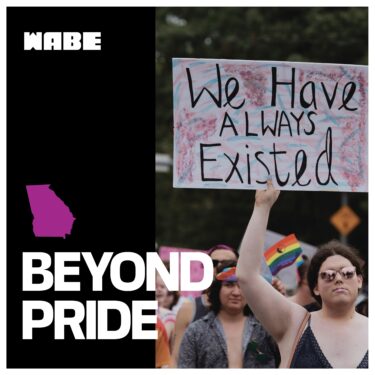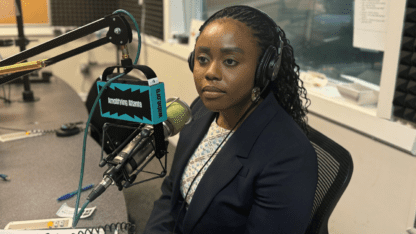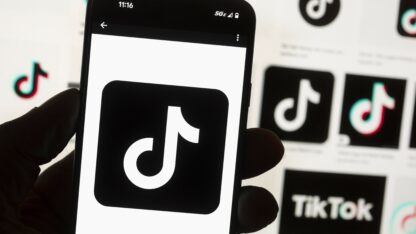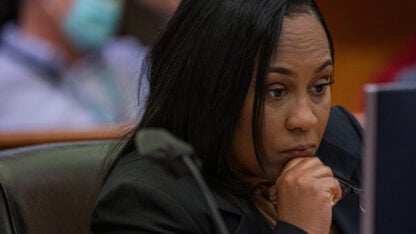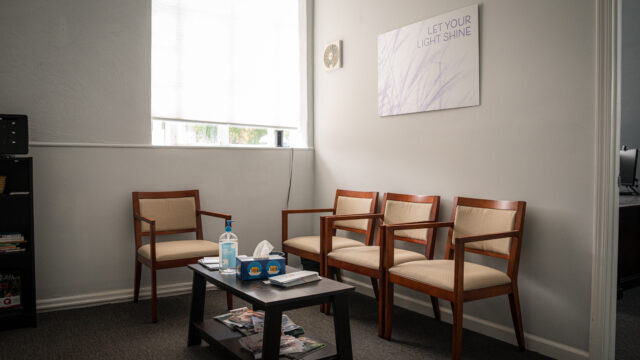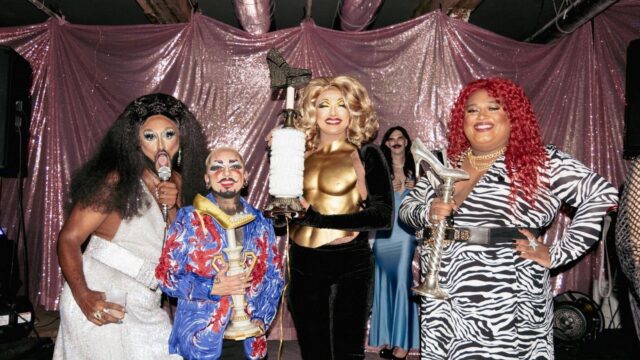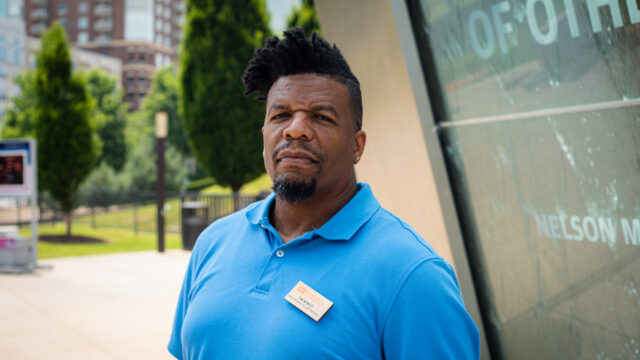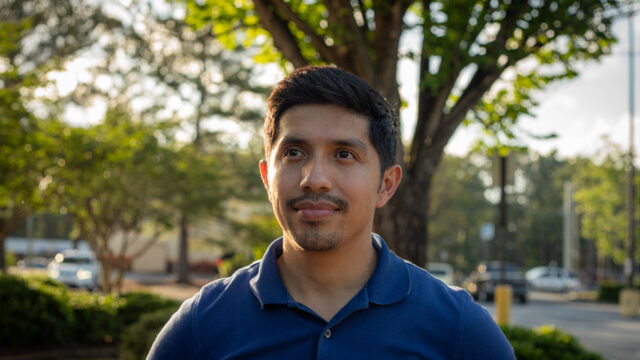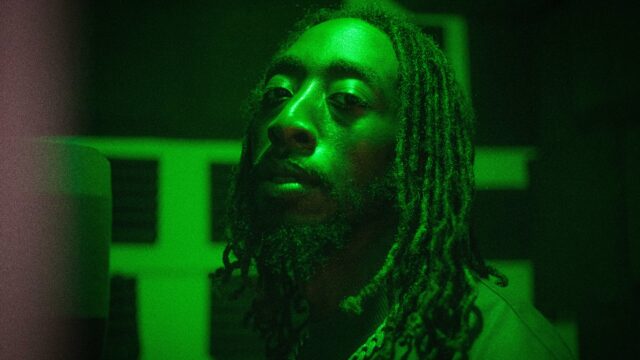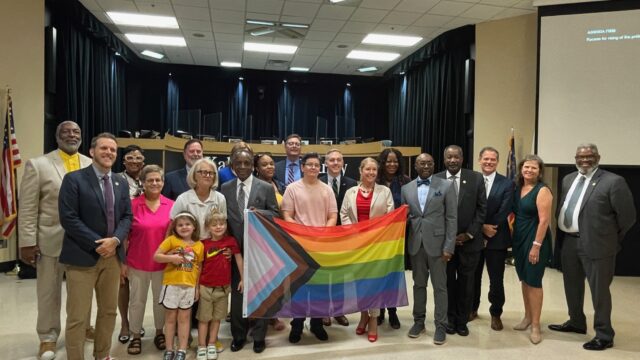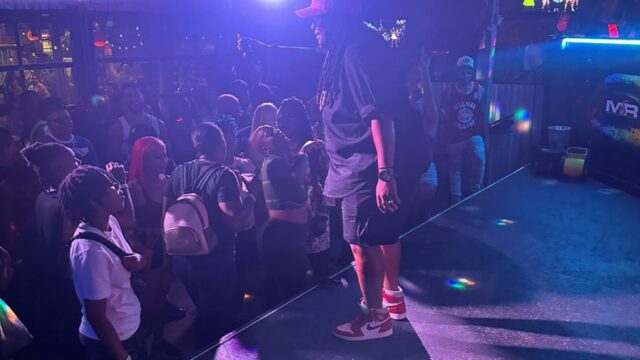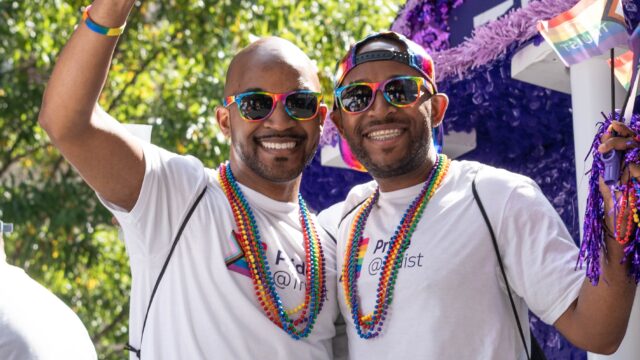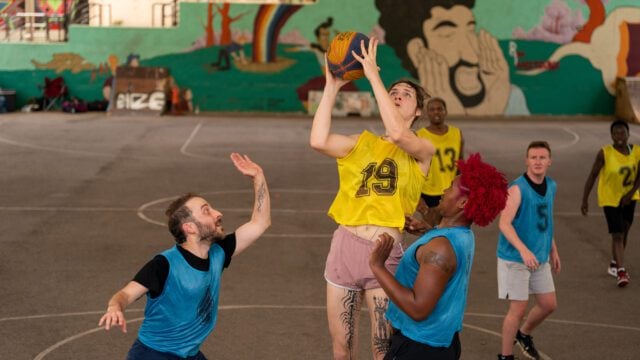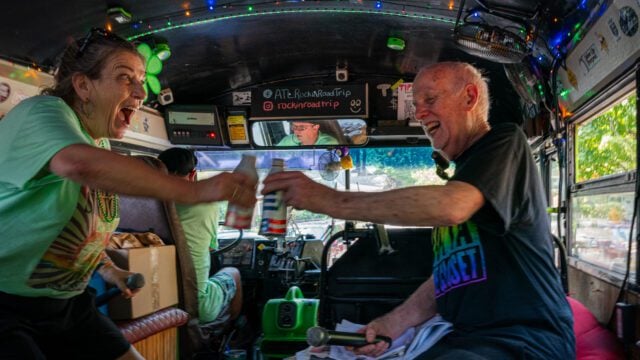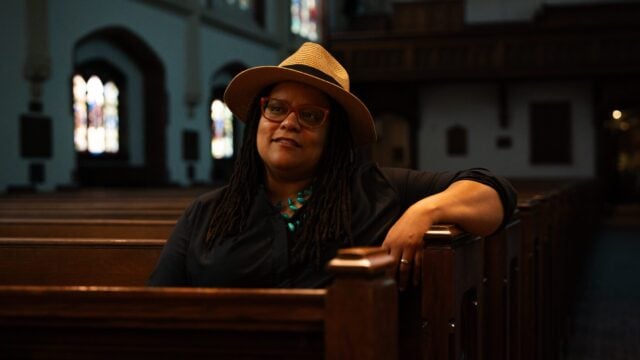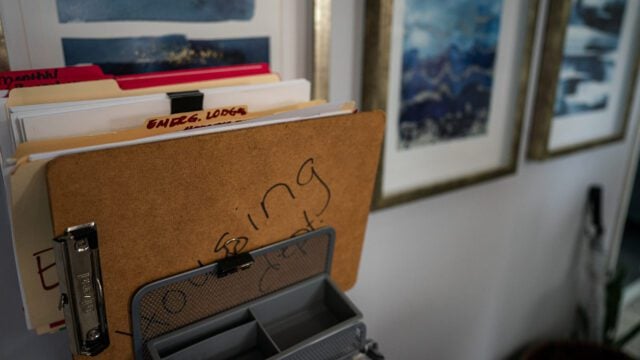Like many TikTok users, Jere Chang arrived on the platform during the pandemic. It was a dark time in her life. Both of her parents had died at the beginning of 2020, and the combination of grief and pandemic distance was difficult to handle.
“I mean, I’m a mother and a wife, and I definitely had my family, but I was just — I felt disconnected to society, like many of us did,” she told WABE.
Then, in November 2020, she saw her wife laughing at videos on the short-form-video-sharing app, which she had not gone on before. It piqued her interest enough that she decided to start posting videos herself, not expecting it to go anywhere.
However, it was not long before Chang began to amass a following. By the following year, TikTok had named her one of their LGBTQ+ Trailblazers. Now, almost four years later, she has more than three million followers across TikTok, Instagram, YouTube and Facebook. Her videos are a mix of family fun, skits about her experiences as an educator who teaches neurodivergent children, reflections on being queer in the classroom and more.
The videos of her wife pranking her lunches have become especially popular for their ingenuity. In one, Chang’s wife pranks her lunch to celebrate two million followers by giving everything in pairs of two. This includes hollowing out an orange and resealing it with two blueberries inside.
“People ask her to make videos [explaining how she carries out her pranks]. She’s afraid to because she’s literally tampering with food. And the last thing she wants to do is show people how to tamper with food, and then it becomes a legal issue, right?” Chang says while laughing.
As time-intensive as some of this might seem, Chang makes all these videos on top of being a full-time elementary school teacher. She has been teaching for 20 years, including 17 at her current school, but her path to education was not linear.
“You know, I don’t have to be out like ‘Hey, I’m queer. Deal with it,’ but I need to be unapologetically me just to be a role model for my kids.”
Jere Chang
After college, Chang worked in academic affairs at the University of Georgia before getting a master’s degree in applied linguistics, hoping to move abroad. However, those plans were halted by a relationship she was in, leading her to get another master’s degree in ESOL — teaching English to speakers of other languages.
In the end, she “ended up with nothing but a broken heart and a third master’s degree,” she says.
Now, Chang is married with two kids. Many of her videos center around her and her family just doing regular family activities like going on vacation. For her followers, that kind of representation has been especially impactful.
She says she often receives messages from other LGBTQ+ people saying things like, “You give me hope … You’re in the fast-food lane just buying food. You’re just like a regular person, existing and living, and it gives me hope that I can have a family one day.”
However, Chang also acknowledges that most people do not live in a community as progressive as hers. At those times, Chang says she tries her best to be “a glimmer of hope” for them but is unsure as to what else to say.
In the classroom, Chang approaches her queer identity in a similar way. “I never walk into a class and say, ‘Hey kids, okay, we’re going to sit on the carpet and we’re going to talk about gay,’” she says.
Instead, she says she is more of a “passive activist.” When her sons — who both attend the school she teaches at — come into her classroom, she brings up her family. Otherwise, though, Chang says she acts like any other teacher.
Chang’s path to where she is now — a teacher who’s not afraid to be out in the classroom — was not a quick one. She grew up in Sugar Hill, a town of 25,000 located about an hour north of Atlanta. Chang says she won Little Miss Sugar Hill in fourth grade but that otherwise growing up was difficult for her.
“Everything’s supposed to be bro culture. And I guess I could play the game well enough, but I was miserable,” she says. “Of course, [I was] not out being gay. It’s not like — kids now have no idea. It’s not that I was in the closet. It was that [being gay] didn’t exist for me.”
However, those tough circumstances are also part of what fostered her comedic abilities.
“Growing up gay, especially when I did, you had two choices: be sad or be funny, yeah? I mean, people come at you. You either got to have it, you either got to clap back at folks and outdo them, or let them get to you,” Chang says.
She says that even as an adult, being fully out has not been without its difficulties. Chang recalls one instance where she, her wife, and their one-year-old son went to Costco. The cashier ended up asking whether her son was her grandson.
“I guess she just assumed I was [my wife’s] mother-in-law, being older and interracial and two women … And she said, ‘Is that your grandson?’ And me, not wanting to offend her, immediately said ‘Yes.’ … I was so upset with myself,” Chang says. “You know, I don’t have to be out like ‘Hey, I’m queer. Deal with it,’ but I need to be unapologetically me just to be a role model for my kids.”
A team of WABE reporters take a deeper look at the issues affecting LGBTQ people in Georgia. Plus, LGBTQ Atlantans in their own words, Pride events calendar, LGBTQ coverage from other NPR stations across the South and more.
Being there for her kids has been front and center in Chang’s mind as her following has grown. Chang says she often gets comments like “Your kids should have a father.” She sees other LGBTQ+ creators who receive similar comments respond with videos in which they ask their own children how they feel about not having a father or mother. Their kids reply that they are happy with their own parents. For Chang, though, that approach is off the table.
“No judgment to [those creators], but for me, it’s my fight to fight,” she said. “If my children, when they get older and they become adults, if they want to join that fight with me, absolutely. But I’m not going to put them through that.”
She also keeps a close eye on the comments under any videos featuring her kids and often disables them if any vaguely negative comments about her children are made. For the most part, though, Chang says that balancing her family with her job and TikTok just comes down to making time when it matters.
“I’ll edit [my videos] during lunch at school, and when I get home, [I’ll] put the phone down, go on a bike ride with my kid, don’t get on the phone, give them the weekends –— things like that,” she says.
Chang’s sons also have their own opinions on their mother’s fame. She says her youngest asks her to use her platform to make Lego videos, to which she replies that Legos simply aren’t her niche. Meanwhile, Chang’s oldest son is one of her fans. She remembers a moment when a fan at a teacher’s conference asked for a photo with both her and her family, which she declined.
Her oldest son then asked the fan “Do you know how many followers she has?” Chang says. “And I’m like, ‘Stop saying that. They probably know.’…It’s kind of embarrassing, but also he’s proud of me, so it’s kind of cute, too.’”
This story is part of the ongoing series Beyond Pride, in which WABE reporters take a deeper look at the issues affecting LGBTQ people in Georgia. Plus, hear LGBTQ Atlantans in their own words, check out a Pride events calendar running through the fall, LGBTQ coverage from other NPR stations across the South and more.

